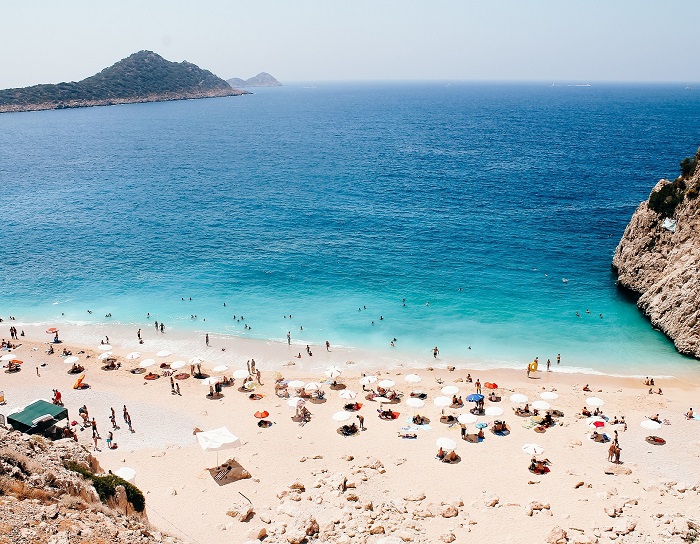Why Turkey Can Be Expensive for Tourists
Turkey, a diverse and culturally rich country bridging the gap between Europe and Asia, is a popular destination for tourists. While it offers a plethora of attractions and experiences, it can be an expensive place to visit for several reasons.
1. Currency Exchange Rates:
One significant factor contributing to Turkey’s expense for tourists is the fluctuating currency exchange rates. The Turkish Lira (TRY) has been prone to devaluation in recent years, which can result in tourists receiving less value for their money when converting their currency.
2. Accommodation Costs:
The cost of accommodation in Turkey varies widely, but in major cities like Istanbul, Ankara, and Antalya, prices for hotels and rental properties can be relatively high. Luxury hotels, in particular, can come with a hefty price tag.
3. Inflation:
Turkey has faced high inflation rates in the past, which can affect the cost of everyday goods and services for tourists. This is especially noticeable when dining out, shopping, and using transportation services.
4. Visa Costs:
Many tourists need to obtain a visa to enter Turkey, which comes with an associated cost. The fees can vary depending on your nationality and the type of visa you require. For UK residents, a visa is not currently required for entry into Turkey.
5. Tourist Areas:
Popular tourist destinations often come with higher price tags. While exploring places like Istanbul’s Grand Bazaar or the coastal resorts in Bodrum, tourists can expect to pay more for souvenirs, meals, and entertainment.
6. High Season Premium:
Turkey has distinct high and low tourist seasons. During the peak summer months, prices for flights, accommodations, and tour packages tend to rise significantly. Traveling during the off-peak season can lead to cost savings.
7. Entrance Fees:
Visiting historical and cultural sites in Turkey often involves paying entrance fees. Attractions like the Hagia Sophia, Topkapi Palace, and Ephesus can add up in terms of expenses.
8. Transportation Costs:
Traveling within Turkey can be costly, especially if you’re planning to cover significant distances. Domestic flights, long-distance bus rides, and even local transport fares can chip away at your budget.
9. Food and Dining:
Turkish cuisine is renowned for its delicious flavours, but eating out can be expensive, particularly in tourist areas. However, you can save money by opting for local eateries and street food stalls.
10. Language Barrier:
The language barrier can make it challenging for tourists to find budget-friendly options. In many tourist-centric areas, English may be widely spoken, but it’s often associated with higher-priced establishments.
11. Unexpected Expenses:
Tourists should also consider unexpected expenses, such as medical emergencies or unexpected changes in travel plans, which can add to the overall cost of the trip. You should have good medical insurance already, but there are likely to be up-front costs that you will have to claim back later.
12. Tourist Traps:
Like any popular tourist destination, Turkey has its fair share of tourist traps. It’s essential to be aware of potential scams or overpriced items targeted at tourists.
13. Government Taxes
I read recently that the Turkish government have been struggling to get businesses to pay sufficient taxes and everybody is ducking and diving to avoid them. Therefore, the government have slapped a 40% levy on alcoholic drinks, in order to balance the books. This cost has been passed on to the tourists.
While Turkey can be an expensive destination for tourists, there are also ways to manage and reduce costs. Planning your trip during the off-peak season, staying in budget accommodations, exploring less touristy areas, and trying local street food are just a few strategies to make your visit to Turkey more budget-friendly. Ultimately, understanding the factors contributing to the expenses and planning accordingly can help you enjoy all that this diverse and captivating country has to offer without breaking the bank.
My Own Experience
I have recently returned from Hisaronu in Turkey and overall, it was a lovely holiday. However, I noticed that living costs (food/drink) had dramatically increased from 2018 levels and it came as quite a shock. A bottle of imported beer (Budweiser, Becks, Miller for example) averaged 150 Turkish Lira – which in UK terms, equated to more than £4.00 per bottle!
Top Tips:
- Watch out for prices set in pounds instead of lira. The lira is very week compared to the pound and some unscrupulous business owners are advertising their prices in pounds. This means that it is possible to pay the same or more as you would in the UK.
- As mentioned. imported goods cost more to buy and sell and I noticed that the average price for a bottle of beer was 150 Turkish Lira (£4.00 roughly), yet a pint of local beer averaged 70 to 110 Turkish Lira (£2.50 to £3.00).
- Be prepared to haggle over prices – especially in markets and souvenir shops. Us Brits feel awkward and we are most likely to accept the price on the tag, but the simple fact of the matter is that the Turks expect a bit of haggling.
Conclusion
In the old days, we went to Spain because it was cheaper and as Spain’s prices crept up, we headed to Greece. Then Greece got expensive, so we put up with a 4.5 hour flight and headed to Turkey. Suddenly, Spain seems relatively cheap and I for one will be heading back there – and only a 2.5 hour flight!

